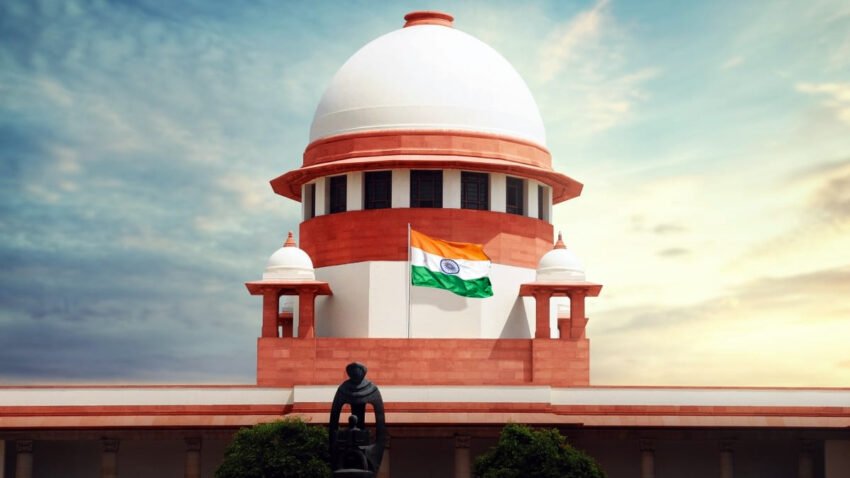Published on :
New Delhi: The Supreme Court on Wednesday extolled the importance of the right to default bail under the Criminal Procedure Code (CrPC), saying the same cannot be scuttled by filing chargesheets before the probe is complete [Ritu Chhabaria vs Union of India].
A bench of Justices Krishna Murari and CT Ravikumar stressed that the right of default bail was not merely a statutory right but a fundamental one that flows from Article 21 of the Constitution.
Hence, chargesheet cannot be filed before completing investigation only to deprive the accused person of default bail, the Court underlined.
The Court stated the following:
-Without completing the investigation in a case, a chargesheet or prosecution complaint cannot be filed by an investigating agency only to deprive an arrested accused of his right to default bail under Section 167(2) of the CrPC.
-Such a chargesheet, if filed by an investigating authority without first completing the investigation, would not extinguish the right to default bail under Section 167(2) CrPC.
-The trial court, in such cases, cannot continue to remand an arrested person beyond the maximum stipulated time without offering the arrested person default bail.
The importance attached to such a procedural formality is to ensure that no accused is harassed or ‘subject to unfettered and arbitrary power of the state’, the bench underscored.
“The process of remand and custody, in their practical manifestations, create a huge disparity of power between the investigating authority and the accused. While there is no doubt in our minds that arrest and remand are extremely crucial for the smooth functioning of the investigation authority for the purpose of attaining justice, however, it is also extremely important to be cognizant of a power imbalance,” the bench said.
The observations came in a judgment disposing of the default bail application of realty developer Sanjay Chhabria, accused of defrauding Yes Bank.
The petition before the top court was filed by his wife.
It was pointed out that the Central Bureau of Investigation (CBI) would keep him in remand beyond the statutory limit of 60 days, under the pretext of multiple supplementary chargesheets.
The petitioner’s counsel submitted that the probe was still under way, and the accused had not been named in the complaint.
The Court had released the accused on interim bail in February this year, which was made absolute by means of the today’s ruling.
The bench dismissed the preliminary objections of the CBI on the maintainability of the plea. The Court said that it is entrusted by the Constitution to protect the civil liberties of individuals and society at large.
“These civil liberties, which manifest themselves in the form of fundamental rights, are what allow the people of this country to effectively negotiate with the state and maintain the parity in power in the social contract between the people and the state. If this Court refuses to exercise its jurisdiction on technicalities in cases of violations of fundamental rights, it will lead to a ripple effect that will result in a dysfunctional social contract, wherein the people of this country would become subject to an arbitrary and unfettered tyranny of the state.”
The bench pointed out out that the practice of filing preliminary chargesheets to increase remand was first flagged by the Law Commission of India in its 14th Report, after which an amendment to the CrPC was made providing for default bail.
A supplementary chargesheet where it is explicitly stated that the investigation is still pending cannot be used to scuttle the right of default bail, the Court stressed.
“First investigation is to be completed, and only then can a chargesheet or a complaint be filed within the stipulated period, and failure to do so would trigger the statutory right of default bail under Section 167(2) of Cr.PC,” it was explained.
The top court observed that the factual position was missed by the trial court in the instant case, which instead of offering default bail to the accused, ‘mechanically accepted the incomplete chargesheets’ to continue the remand.
“The Investigating Agency and the trial court, thus, failed to observe the mandate of law, and acted in a manner which was manifestly arbitrary and violative of the fundamental rights guaranteed to the accused.”
Advocates Sujay Kantawala, Sarthak Sachdeva and Santosh Sachin appeared for the petitioner.
Additional Solicitor General KM Nataraj, with advocates Indira Bhakar, Vatsal Joshi, Vinayak Sharma, BK Satija, Pratyush Shrivastava, and Arvind Kumar Sharma represented the respondents.



